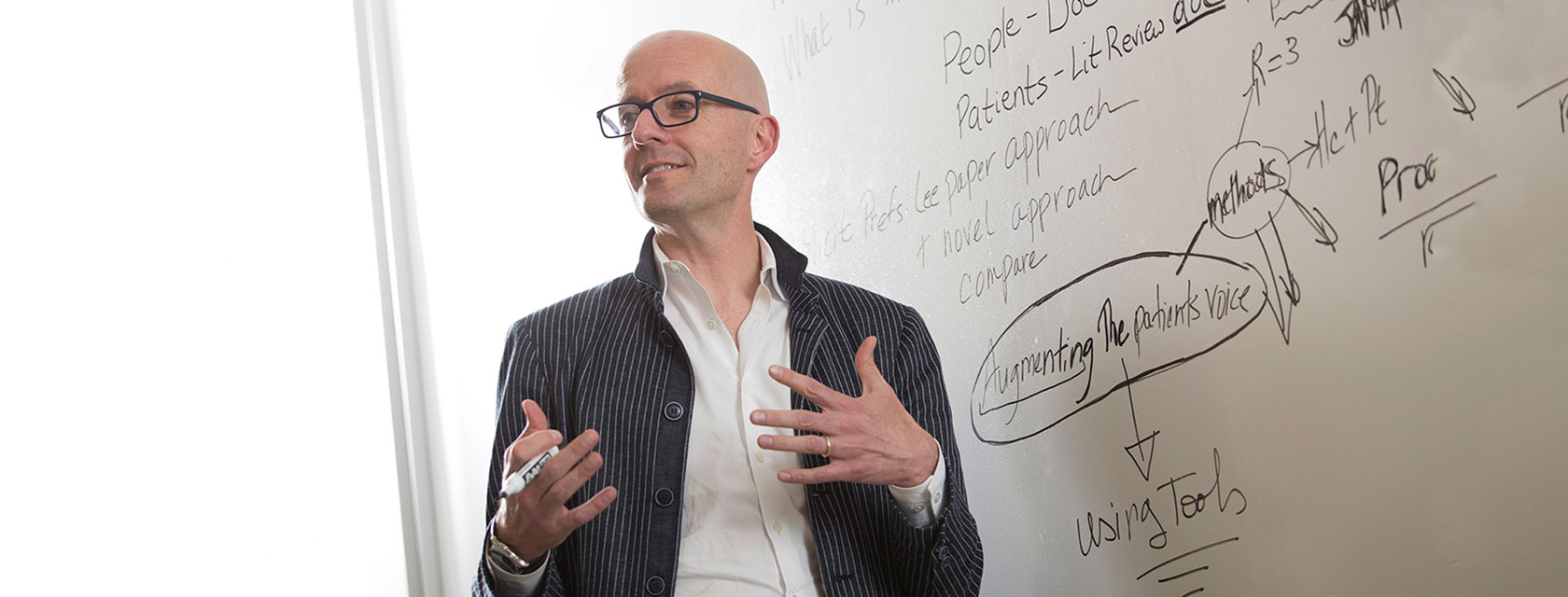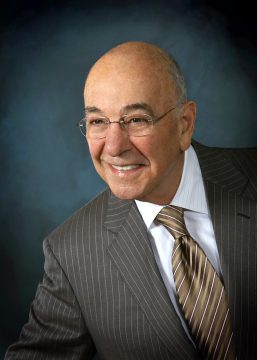
Dartmouth undergraduates will soon have far greater access to the groundbreaking research and elite training offered by The Dartmouth Institute for Health Policy and Clinical Practice, thanks to a generous gift from Dartmouth College alumnus Eric Eichler D’57. The gift will support new undergraduate educational programming in healthcare delivery science—previously available only at the graduate and professional level at Dartmouth. Harnessing the power of interdisciplinary scholarship and teaching, this undergraduate initiative will bring together faculty from across campus to offer students exciting new educational opportunities in healthcare delivery.
“For several years, we have been exploring how best to create opportunities for Dartmouth undergraduates,” says Elliott Fisher, MD, MPH, director of The Dartmouth Institute. “With Eric Eichler’s visionary gift, we will be able to work closely with our colleagues in the Faculty of Arts & Sciences to build a program that will enable students to understand the challenges facing healthcare systems around the world, and to begin to think critically about what will be required to transform healthcare.”
Set to launch this year, the Health Care Leadership Initiative includes plans for an annual summer program, fellowship opportunities, and both co-curricular and for-credit courses. Beginning in July, undergraduates from Dartmouth and other institutions can enroll in Dartmouth Health Care Foundations. A weeklong residential program, Dartmouth Health Care Foundations will give students interested in public health and healthcare delivery the chance to study with faculty from The Dartmouth Institute and a variety of related arts and sciences disciplines. Its curriculum provides an entry point from which undergraduates can examine the most pressing issues facing healthcare today and allows students to work closely with experts in the field.
Also starting in the summer of 2018, ten Dartmouth undergraduates will be awarded the Eric Eichler ’57 Fellowship for Health Care Leaders. Fellows attend the summer residency at no cost and participate in a yearlong mentorship program with a faculty member. They will take part in healthcare delivery science internships and research opportunities, and work on community projects responsive to health needs. Through experiential learning and extensive mentorship, the Eric Eichler ’57 Fellowship for Health Care Leaders will keep outstanding students engaged in their pursuit of healthcare careers.
A one-term, co-curricular, hybrid online course that presents an overview of healthcare delivery science through a liberal arts lens will be available to Dartmouth undergraduates beginning in September 2018. This course will approach the challenges of healthcare from a wide range of disciplines.
Additional plans call for the development of two multidisciplinary, accredited courses designed and overseen by faculty members from both arts and sciences and The Dartmouth Institute to be offered to Dartmouth undergraduates.
Duane Compton, PhD, dean of the Geisel School of Medicine, says, “The Dartmouth Institute is widely recognized as a leader in health systems research, education, and innovation, and its work contributed to national healthcare policy reform and has fundamentally transformed our understanding of healthcare. We’re excited to be able to offer undergraduate students the opportunity to learn about this important field of study from some of its leading thinkers.”
Building on a Strong Foundation
The undergraduate Health Care Leadership Initiative was formed through close collaboration between Fisher, Elizabeth Smith, PhD, dean of the faculty of Arts and Sciences, Tim Lahey, MD, MMSc, director of education at The Dartmouth Institute, and other innovators across campus.
“Dartmouth is uniquely positioned to design a program like this, not only because of the strength of The Dartmouth Institute but also because of our small size and experience with developing integrated educational programming,” Smith says.
Lahey, who presided over the team creation of The Dartmouth Institute’s hybrid online Master of Public Health degree program and has taught Dartmouth undergraduate students about HIV and other health-related topics, says that by his estimate 20 to 25 percent of Dartmouth undergraduates are interested in health careers. The Health Care Leadership Initiative, Lahey says, “takes things that are great about Dartmouth, like interdisciplinary scholarship and in-depth mentorships, and applies them to health careers in a way that students pursuing health professions will really appreciate.”

The son of a physician, Eric Eichler has paid close attention to the evolution of medicine and healthcare. Now retired from a career in real estate and an active alumni volunteer, Eichler was moved by President Philip Hanlon’s commitment to Dartmouth’s leading role in efforts to build a more efficient, effective, and sustainable healthcare system. “This gift will start the ball rolling to address questions about healthcare and medicine and how they are taught,” Eichler says. “Our country can do better than it’s doing now.” He hopes other people who are concerned about the state of healthcare will join him in supporting this new undergraduate program and help it flourish.
To learn more about Dartmouth Health Care Foundations and the Eric Eichler ’57 Fellowship for Health Care Leaders, visit tdi.dartmouth.edu/education/professional-education/healthcare-foundations/overview.
About The Dartmouth Institute
The Dartmouth Institute for Health Policy and Clinical Practice is charting the path toward a high-quality, cost-effective healthcare system—one that is accessible to all people. Founded in 1988 by research pioneer John E. Wennberg, we are known for challenging widely held assumptions in healthcare and health economics and for our development of the Dartmouth Atlas, Shared Decision Making, and Accountable Care Organizations. Our research seeks to understand how our healthcare systems are performing—and why they are too often failing—so that we can eliminate waste and inefficiency and recommend evidence-based improvements, such as new payment models and new models of patient-physician partnership. Our graduate degree programs, including the online and residential Master of Public Health (MPH) programs and the Master of Health Care Delivery Science (MHCDS), are training the next generation of innovators to evaluate health system performance and affect transformational change in care delivery. For more about The Dartmouth Institute visit tdi.dartmouth.edu.
About the Geisel School of Medicine at Dartmouth
Founded in 1797, the Geisel School of Medicine at Dartmouth strives to improve the lives of the communities it serves through excellence in learning, discovery, and healing. The Geisel School of Medicine is renowned for its leadership in medical education, health care policy and delivery science, biomedical research, global health, and in creating innovations that improve lives worldwide. As one of America’s leading medical schools, Dartmouth’s Geisel School of Medicine is committed to training new generations of diverse leaders who will help solve our most vexing challenges in healthcare.